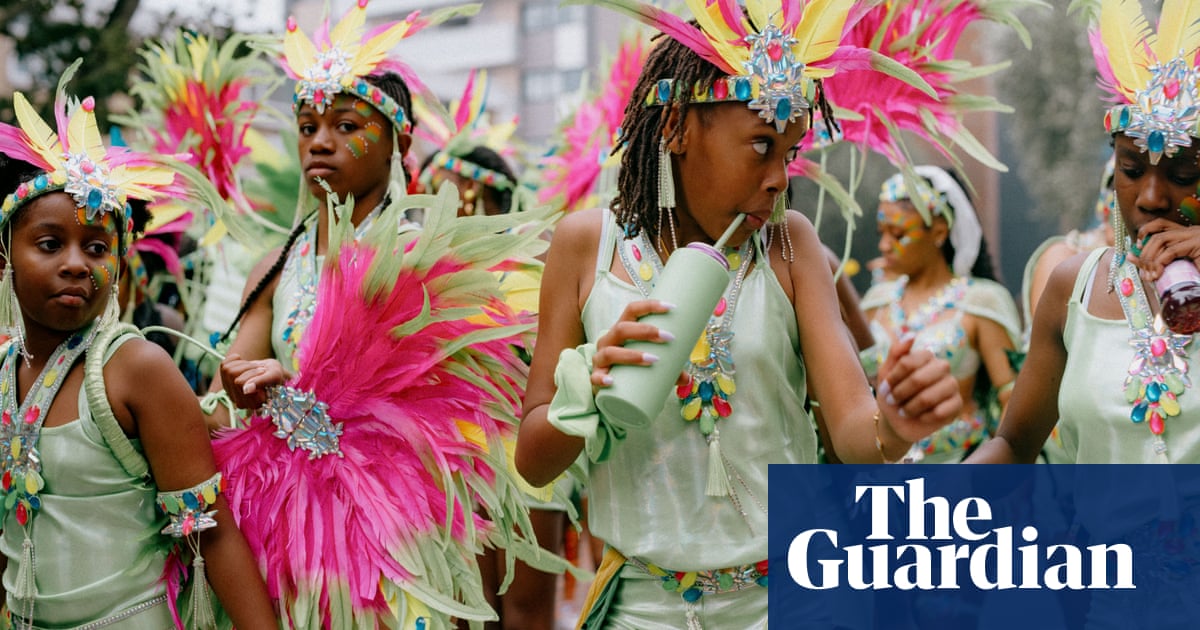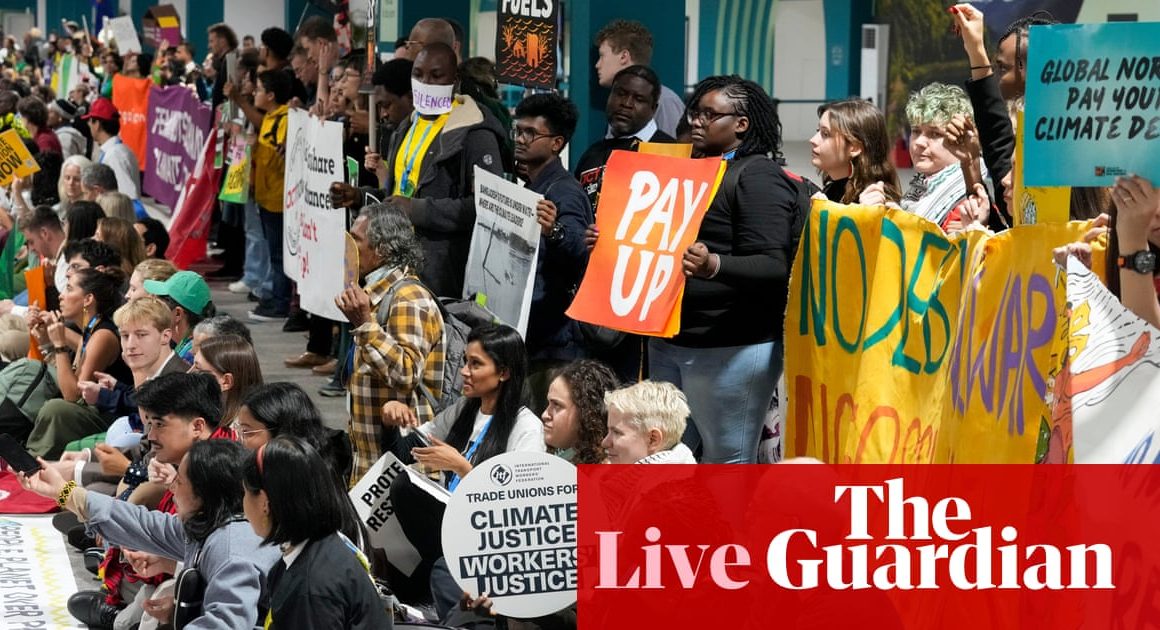Notting Hill carnival returned this weekend, as raucous, joyous and vibrant as ever, an embodiment of multicultural Britain at its finest. This was my 12th time attending but my first as a journalist, and while part of me longed to spend the day dancing with friends, I knew I had to explore the corners of the carnival I often neglect.
This year’s event felt especially necessary. I could sense it in the crowd. Barely a month after racist riots swept the nation, the carnival offered a timely and powerful counter-narrative. Its inception in 1958 was a response to racist riots, and more than 60 years later it remains essential for ensuring that Black and other minority communities are seen and heard in Britain. But the carnival has also evolved.
As Keith, who has led the KCC and the Rocking Crew system for the last 33 years, tells me: “It’s about leaving everything at the door, forgetting about everything and having a fantastic two days despite whatever else is going on.”
The essence of protest still lingers, though. The day began with J’Ouvert, a symbolic re-enactment of liberation from slavery and a classic carnival feature. News of its official cancellation this year caused heartbreak, but people still gathered in the early morning, dousing themselves in paint and oil – a testament to their commitment to longstanding traditions.
-
A family sporting Jamaican flags: (left to right) Paige, Carly, Kian, Archie, Fabian and Simon.
-
Above left: Dom, who’s at his 15th carnival, waiting for the music to begin. Above right: a boy enjoys the flow at Channel One.
Today, the carnival’s scale has allowed it to transcend its roots. It welcomes everyone, regardless of colour or creed, and stands as a bold proclamation that diversity is not just Britain’s reality but its greatest strength. For those who might disagree, a simple stroll through the streets would suffice to witness the unique unity that the event fosters. I couldn’t help but smile watching grannies and geezers tapping their feet to reggae alongside lively lads catching whines, while the scent of jerk chicken wafted through the air.
When I stopped for food I chatted with Joseph, an employee at Bella Bell’s Kitchen, a family-run affair serving a blend of Jamaican and Mauritian dishes. He only had two minutes to talk as the queues were building and I could see his mum keeping a kind but close eye. His sister’s pepper prawns were the thing to try, apparently, but they weren’t on the menu today, so I stuck to the jerk. Joseph, now in his seventh year at the carnival, told me he’d keep coming back because “there aren’t that many Caribbean or ethnic minority festivals like this in the UK, so it’s nice that we can come together and celebrate our heritage”.
-
Mike, Maurice and Treble Tee from Rampage Sound: ‘We’ve worked a lot in west London and you really get that genuine feel that carnival is just a given, it’s embedded in the culture here,’ says Treble Tee.
For a music lover, the variety, authenticity and sheer number of sound systems at the carnival is mouthwatering. From reggae, R&B and drum’n’bass to calypso, house and dancehall, it’s all here. Rampage, Saxon, Rapattack, Channel One, King Tubby’s – the list goes on.
For me, no one does it like Aba Shanti-I, though, a true bastion of the UK’s illustrious reggae/dub scene. I could barely contain my excitement as I tiptoed towards him as he was setting up for the day. Calm and oozing a cool that few possess, he spoke about what carnival means to him. “It’s a celebration of our culture, a celebration of our ancestors, of all the struggles they went through to bring diversity to this place.” Aba Shanti-I may be of “Jamaican extraction”, he says, “but it’s a UK phenomenon” and there’s a clear sense of pride when he talks about growing up in Hackney. He is in his 31st year at the carnival and I asked him about the endurance of the community spirit here.
“It’s not there so much after the carnival,” he tells me, “but boy, during the actual carnival itself, yeah, it’s definitely here. And it’s nice to see other people from other places come and enjoy our celebration.” He’s not wrong: I regularly attend his quarterly sessions at Earth in Hackney, but there’s something uniquely powerful about seeing him at the carnival. Nestled slightly away from the madness, where East Row meets Southern Row, his stage is packed all day with people fully immersed in a sonic journey that floats between the spiritual, the psychedelic and the straight-up groovy.
I stopped by Gladdy Wax, another favourite sound system of mine, and got tapped on the shoulder by an energetic woman called Madge. “Ah you know where to come to then?” she said. “This is the only place.” I nodded in agreement, before two mods began skanking next to me in front of the stack. I approached them and got chatting with Fabian, who told me that he and Mattias were from Malmö in Sweden and were attending their 10th carnival. Why did they keep coming back? “Because it’s the best,” he said. “I feel like I love everyone here, and I usually don’t love everyone.” Huge reggae fans but living in Sweden, they both romanticised the punk rock, ska and mod movements but found them always just out of reach. It’s just another reason why they feel at home at the carnival, and they’ll no doubt return next year.
For me, the inclusivity of carnival instils a deep sense of pride about British metropolitan life. Yet each year it faces criticism, often due to reports of antisocial behaviour and violence. But given the numbers in attendance, these incidents are relatively few, and the fixation on this narrative seems to me a deliberate attempt to overshadow the overwhelming majority who bask in the carnival’s warmth and inclusivity. Jay, who grew up in west London, says that if there’s abundant crime, he’s never seen this side. “It’s all about seeing communities come together and celebrate their love for music and food.” It’s the reason he resisted the urge to move to east London like so many of his friends. For as long as carnival remains, west London will always be unique.
It was sad saying goodbye to another carnival weekend but the spirit of it hangs in the air as the summer signs out. It could have been my favourite one yet, mainly because of how much of it I got to see. And it was good to be reminded that despite the adversity, nowhere in the world does diversity like London does, and the carnival is a testament to the strength found in that diversity. To see it as just a party would be unfitting; it’s a powerful and loud statement of resilience, hope, pride and community. I am already looking forward to next year.











